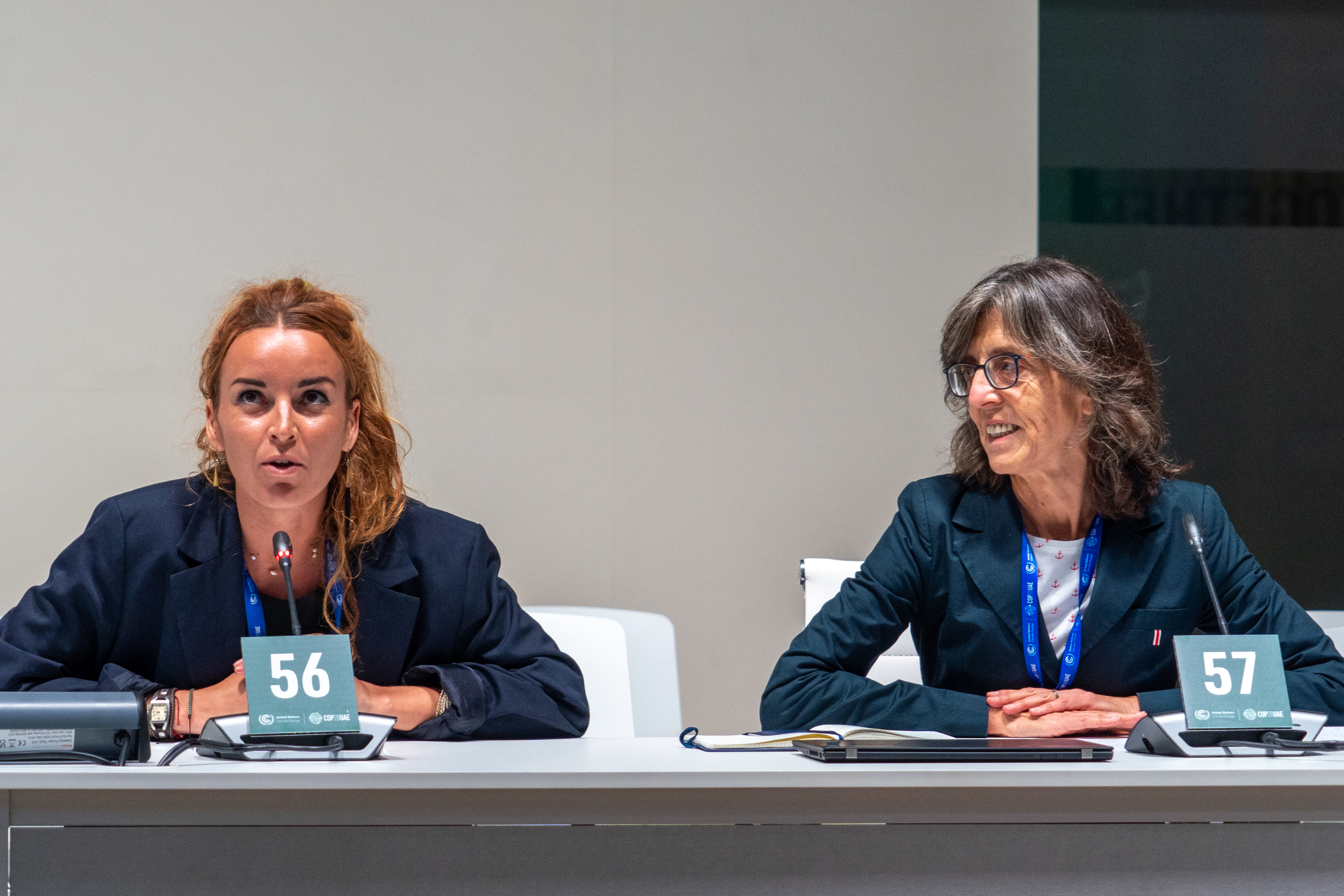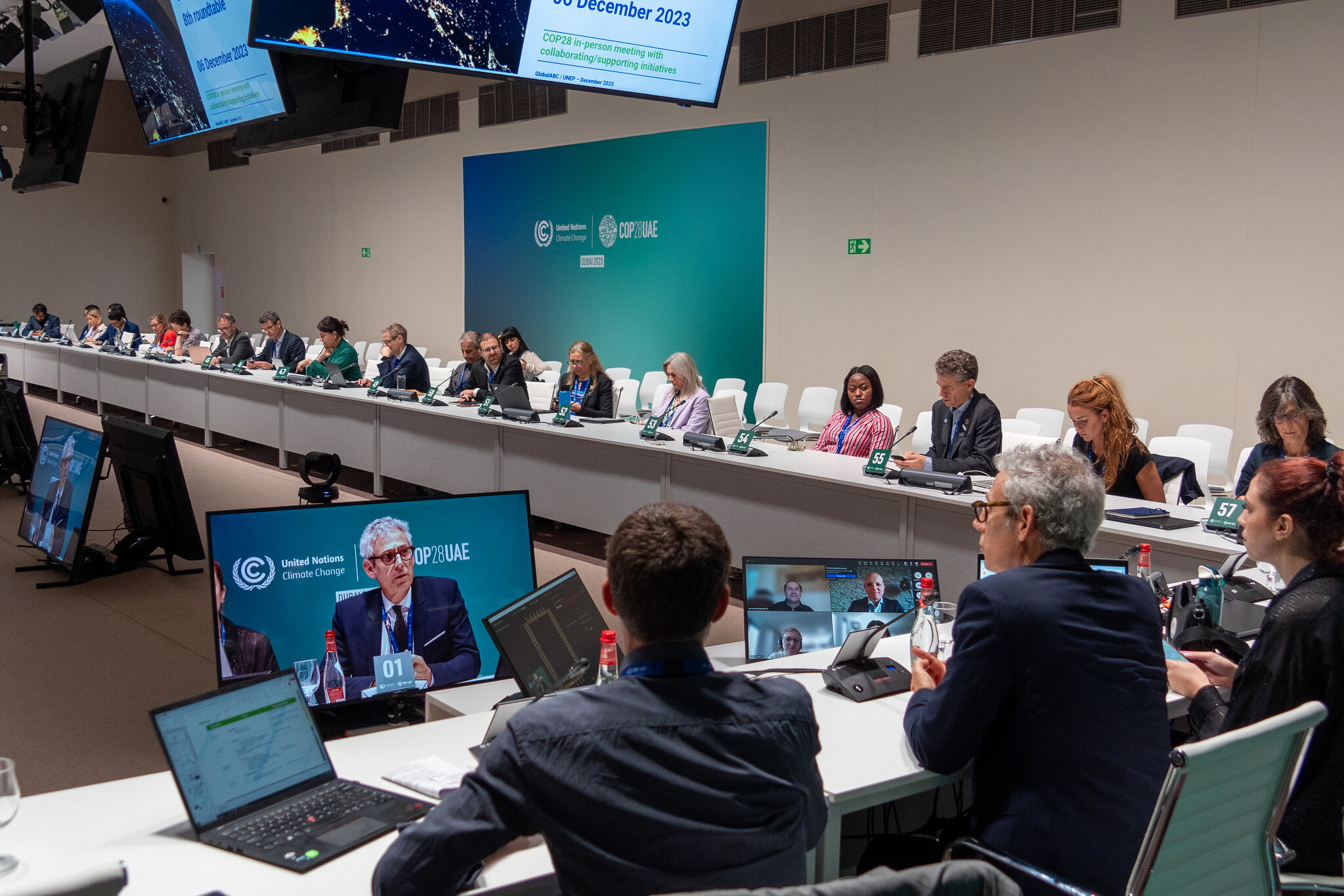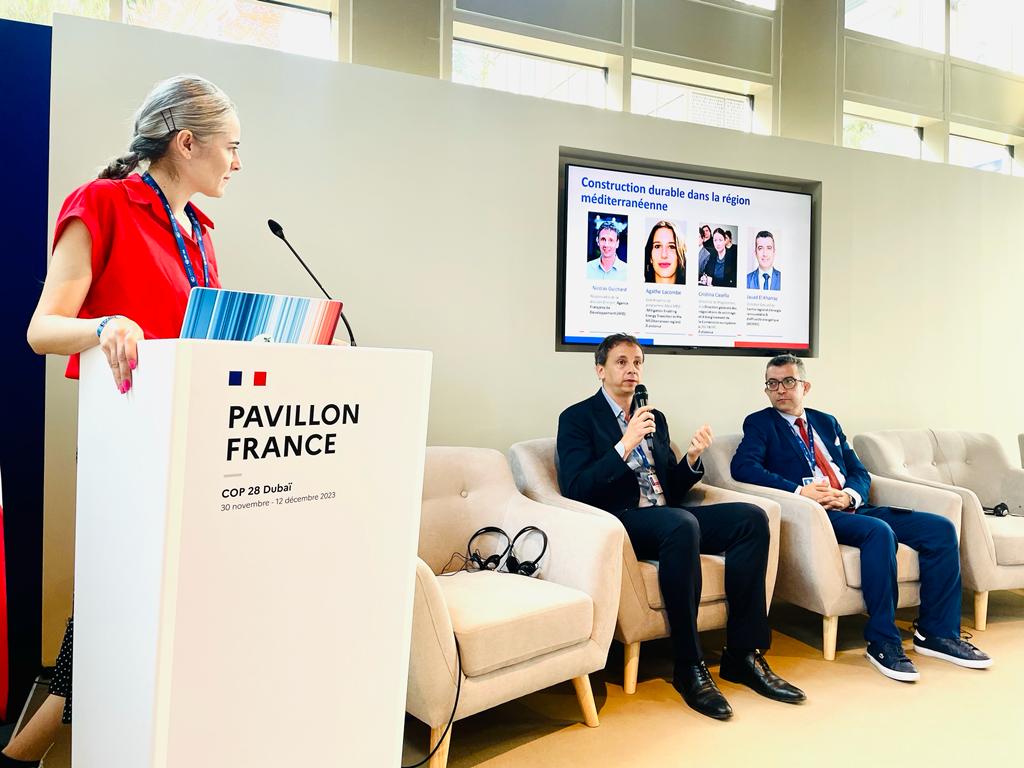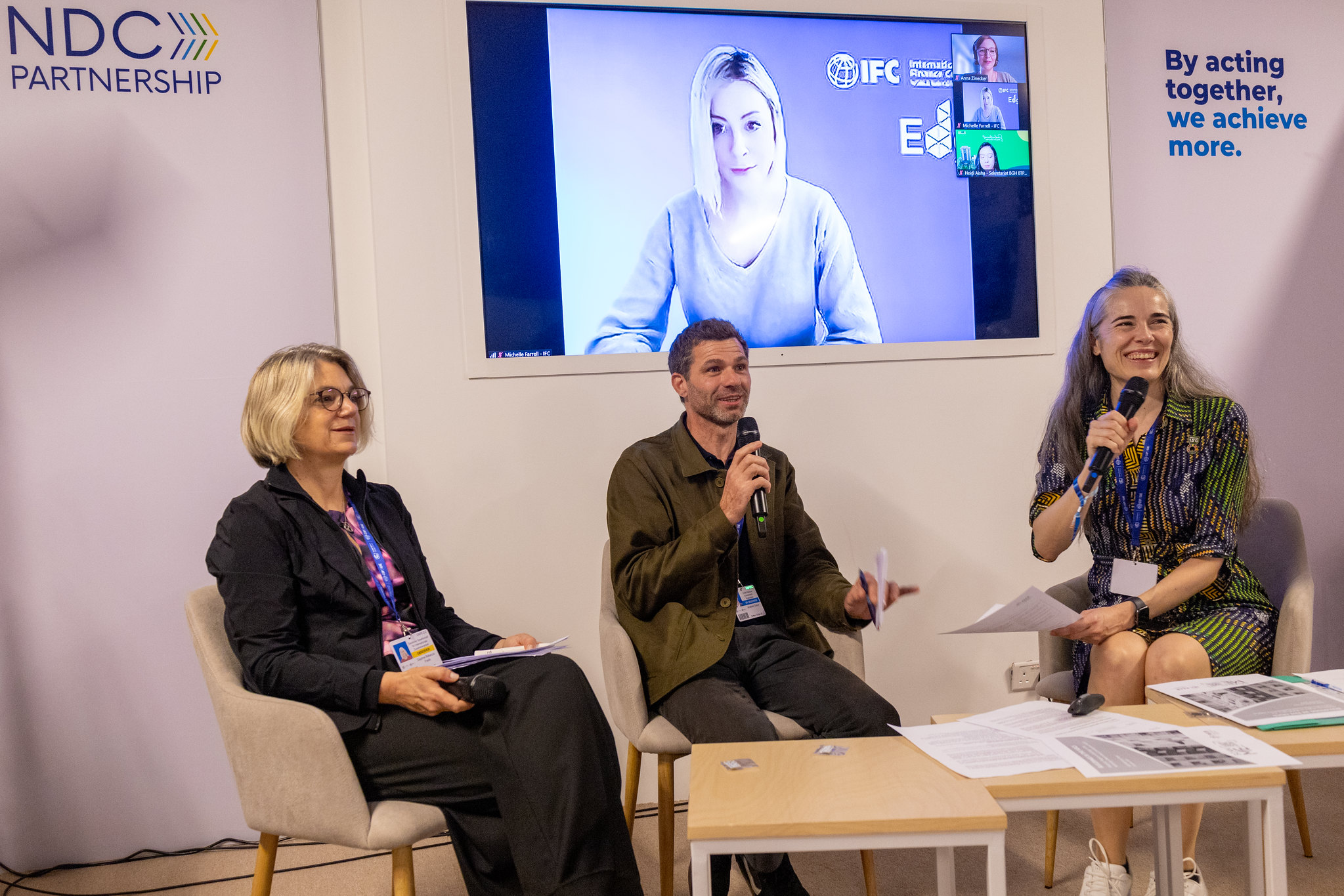Last December, the United Nations Climate Change Conference, COP28, marked a historic turning point for the buildings and construction sector. Held in Dubai, UAE, this conference saw the launch of the "Buildings Breakthrough" initiative, a groundbreaking movement that positioned the built environment at the forefront of global climate change discussions.
As a supporter of the Buildings Breakthrough and the GlobalABC pavilion, PEEB participated in COP28 championing sustainable practices in the buildings and construction sector. The Buildings Breakthrough, spearheaded by the Governments of France and Morocco along with the United Nations Environment Programme (UNEP), emerged as the key outcome of COP28 for the sector. This initiative is aimed at transforming the buildings sector-responsible for 21% of the total global greenhouse gas emissions according to the latest IPCC report. The goal of the initiative is clear and bold: to achieve near-zero emissions and climate-resilient buildings by 2030.
 Juliette Jestin (PEEB/AFD), left, and Antje Wemhoener (Head of PEEB/GIZ), right, at COP28 Buildings Breakthrough roundtable. Photo by 10 Billion Solutions/Christophe ROUSSE
Juliette Jestin (PEEB/AFD), left, and Antje Wemhoener (Head of PEEB/GIZ), right, at COP28 Buildings Breakthrough roundtable. Photo by 10 Billion Solutions/Christophe ROUSSE
The Buildings Breakthrough rallied a large alliance of 27 countries, including major players like the United States, China, Germany, and the United Kingdom, pledged their commitment to this initiative. This diverse coalition, representing about 34% of the global population and 51% of global greenhouse gas emissions, underscored the global consensus and urgency of addressing climate impats within the buildings and construction sector.
The Buildings Breakthrough is part of the broader Breakthrough Agenda, providing a structured framework for yearly enhanced actions across high-emission sectors. In anticipation of maintaining momentum, the first-ever Buildings and Climate Global Forum is scheduled for 7-8 March 2024 in Paris, France. This forum will serve as a critical gathering point for construction ministers and stakeholders across the building sector value chain, including local authorities, NGOs, and businesses. PEEB will take part in this major event that is expected to further catalyse the transformation initiated at COP28.
 Buildings Breakthrough roundtable at COP28 in December 2023 chaired by Yves-Laurent Sapoval (French Ministry of the Ecological Transition). Photo by 10 Billion Solutions/ROUSSE.
Buildings Breakthrough roundtable at COP28 in December 2023 chaired by Yves-Laurent Sapoval (French Ministry of the Ecological Transition). Photo by 10 Billion Solutions/ROUSSE.
Catalysing Action for Greener Constructions in the Mediterranean region through PEEB Med
 Mariana Castaño Cano (left), Nicolas Guichard, Head of AFD’s Energy Unit (center) and Jauad El Kharraz, Director of RCREEE. Photo by Juliette Justin.
Mariana Castaño Cano (left), Nicolas Guichard, Head of AFD’s Energy Unit (center) and Jauad El Kharraz, Director of RCREEE. Photo by Juliette Justin.
PEEB hosted an event at the French Pavilion, fostering a climate-friendly and resilient future in the Mediterranean region. This session gathered stakeholders from various agencies to exchange lessons learned and strategies aimed at promoting sustainable buildings. Among key participants, Nicolas Guichard, AFD’s Energy Head of Unit shared insights into available tools and financing instruments emphasising project preparation and access to international finance in the Mediterranean region. The session also received valuable input of project co-implementers like meetMed, and donors such as the European Commission.
meetMed supported by the EU, has a primary objective of overcoming financial barriers and altering the perception of risk associated with sustainable projects. The projects supported by this MeetMed and showcased during the session not only exhibit scale and replicability but also have the potential to showcase the feasibility of energy efficiency measures. They aspire to instigate a transformative impact on the construction sector, advocating for more ambitious public procurement requirements and practical capacity building for building professionals.
Also with a focus on the Mediterranean region, last year the PEEB Med initiative was launched. This programme supports 7 Mediterranean countries in the transformation of the building and construction sector by promoting the design, construction and operation of energy-efficient and resilient buildings. Supported by the European Union and Agence Française de Développement, PEEB Med combines technical support and investment grants to cover the additional cost of energy efficiency measures. The aim is to encourage players to build and invest in highly energy-efficient buildings, by reducing costs and the perception of investment risk.
From Targets to Action: Harnessing NDCs
 From left to right: Daphne Frank (GIZ) Jonathan Duwyn (GlobalABC), Mariana Castaño Cano (PEEB) and Michelle Farrell (IFC), on screen, at the NDP Partnership Pavilion event at COP28. Photo by 10 Billion Solutions/Rosa Castañeda
From left to right: Daphne Frank (GIZ) Jonathan Duwyn (GlobalABC), Mariana Castaño Cano (PEEB) and Michelle Farrell (IFC), on screen, at the NDP Partnership Pavilion event at COP28. Photo by 10 Billion Solutions/Rosa CastañedaThe discussion on making Nationally Determined Contributions (NDCs) more effective for climate action in the buildings sector was a focal point at a session on 10 December at the NDC Pavilion. With buildings and construction accounting for 37% of energy-related emissions, PEEB presented its study on NDCs, emphasising the gap between policy inclusion and practical implementation. While almost all countries – 168 out of 194 (87%) – have targets on buildings in their NDCs, these targets are often neither measurable nor finance-ready. This event brought together representatives from the GIZ, GlobalABC, PEEB, IFC and Indonesia to explore funding avenues for climate-friendly and resilient buildings.


 more
more